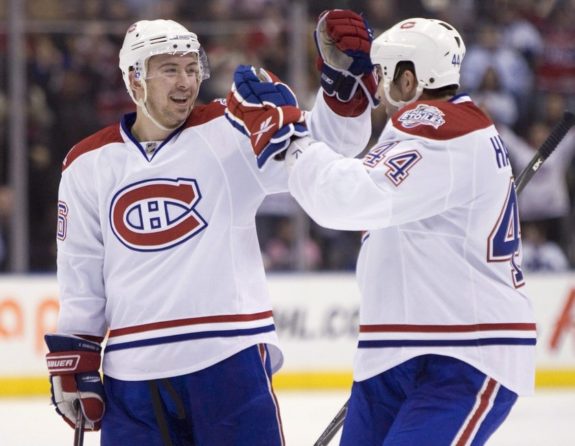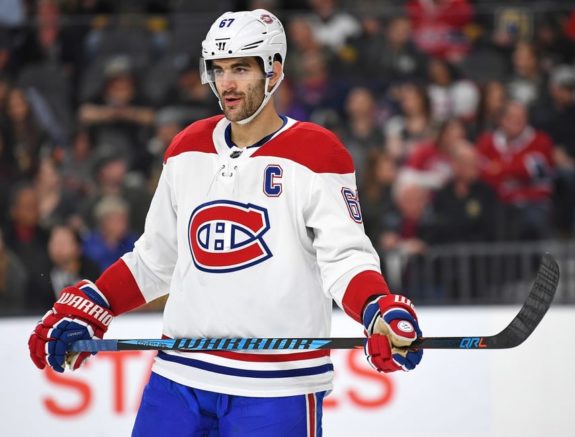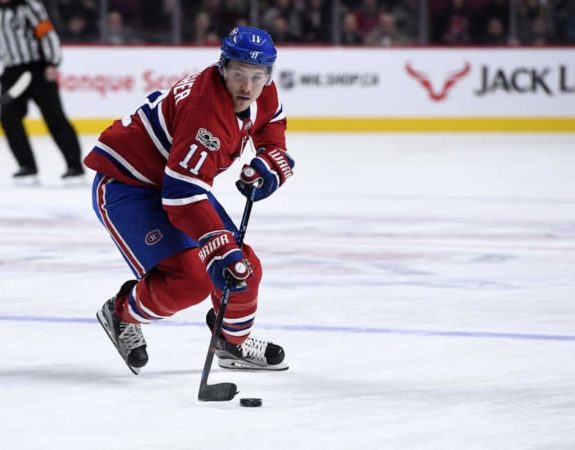Even as the walls were closing in on his time with the Montreal Canadiens, Josh Gorges admirably remained devoted to the team he had called home for seven-plus seasons.
Gorges Gets Traded
Gorges has since played four seasons with the division-rival Buffalo Sabres, announcing his retirement this past week. He’ll be remembered for his work ethic, which is generally the case for defensemen who don’t put up big numbers. His longevity, which allowed him to play 13 seasons, not so much, especially considering he went undrafted. It’s still that loyalty that maybe separated him from the pack.

Consider the circumstances surrounding his departure. Reportedly asked to remove the Toronto Maple Leafs from his no-trade list when he was still with the Habs, Gorges said no, which paved the way for him to be sent to the Sabres instead. It wasn’t that he was necessarily insulted by the request that led him to refuse it, though. It was that he had spent over a half-decade detesting the Leafs, them being the Habs’ chief historical rival.
Sure, it could have been lip service, an excuse for not wanting to play for the Leafs that just sounded good. Considering the type of player Gorges developed a reputation for being, what you saw was likely what you got: an earnest effort. He simply argued he couldn’t deliver it as a Maple Leaf, at least not immediately, and you have to respect that.
Regardless, there’s no denying it all worked out for the best for the Habs. Instead of reportedly trading Gorges to the Maple Leafs for Cody Franson, whose value precipitously declined season after season to the point he’s no longer in the league, the Habs got a 2016 second-round pick in exchange. That pick (Chad Krys) was eventually flipped to the Chicago Blackhawks in the Andrew Shaw deal, which, especially recently, has turned out kinda well (ignoring how the Habs technically gave up Alex DeBrincat too).
The Gorges Trade Keeps on Giving
So, even if it wasn’t his intent, Gorges ended up doing the Habs a relative solid, leaving the way he did. It’s almost been a recurring theme for the defenseman, considering how he had been acquired by then-general manager Bob Gainey in the first place.
At the 2007 trade deadline, Gainey traded defenseman Craig Rivet and a 2008 fifth-round pick (Julien Demers) to the San Jose Sharks. The Habs got back Gorges and a 2007 first-round pick, which would turn out to be Max Pacioretty.

It’s actually the trade that keeps on giving. In addition to Pacioretty’s prolific production over 10 seasons with the Habs, they’ve also gotten Tomas Tatar, top-prospect Nick Suzuki and a 2019 second-round pick following last summer’s deal with the Las Vegas Golden Knights.
Gorges No Flash, but All Substance
Of course, Gorges had little to do with the haul, but it’s intriguing to think what would have happened had Gainey not considered Gorges a worthwhile pick-up. Does he trade Rivet elsewhere and get a whole slew of other assets in exchange? Ultimately, Gorges was worthwhile though, rendering the point moot.
If Gorges had just kept his head down and played his brand of hockey, Habs fans would probably still be looking back fondly on the guy. And yet he also helped to bring along P.K. Subban as the superstar defenseman’s most-common partner for parts of three seasons. And he also helped to bring along Brendan Gallagher, giving the young forward a place to stay after first debuting with the Habs in 2013. It’s easy to believe the experience still positively impacts Gallagher to this day… and where Gallagher, one of the team’s clear leaders and arguably its heart, goes so do the Habs.

No, Gorges wasn’t flashy by any stretch. He could very well be the subject of a case study into the value of intangibles of a given player on a team, though. In an era where the focus is on offense and shot attempts, Gorges provided the Habs with a great deal more.
Gorges may not have been a member of the Canadiens by the end of his career, but based on his contributions to the organization, it kind of feels like it. They continue to reverberate to this day, so it’s easy enough to remember him. What’s more important, though, is he will be missed.